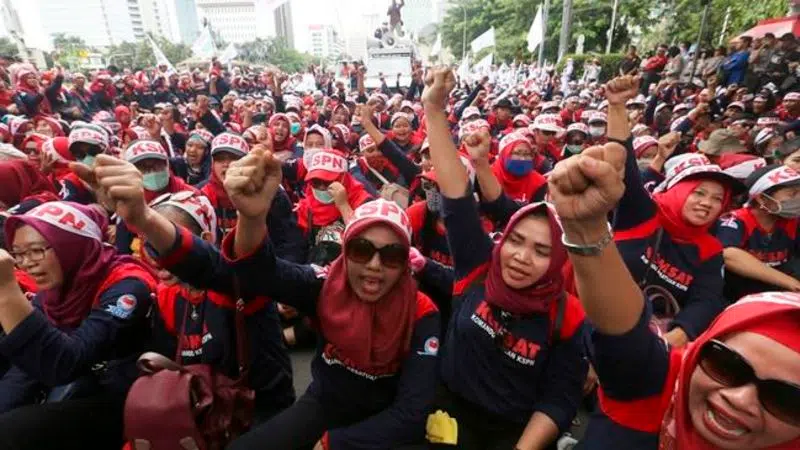
Thousands march on May Day, demand better working conditions
SEOUL, Korea, Republic Of — Thousands of trade union members and activists were marking May Day on Wednesday by marching through Asia’s capitals and demanding better working conditions and expanding labour rights.
A major South Korean umbrella trade union also issued a joint statement with a North Korean workers’ organization calling for the Koreas to push ahead with engagement commitments made during a series of inter-Korean summits last year. Many of the plans agreed to between the Koreas, including joint economic projects, have been held back by a lack of progress in nuclear negotiations between Washington and Pyongyang.
May Day rallies were also being held in other parts of Asia, including the Philippines, Malaysia, Indonesia, Taiwan, Cambodia and Myanmar. Other parts of the world were set to have rallies as well.


